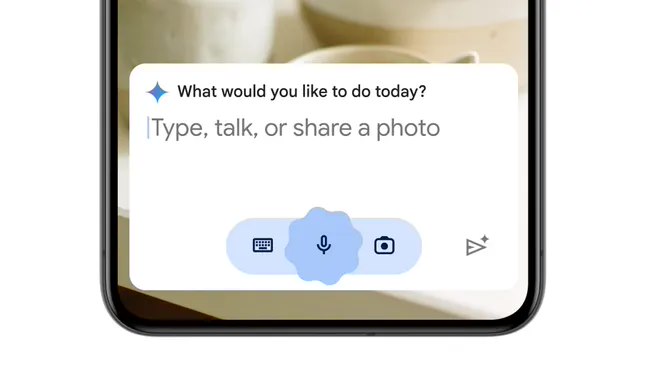 Technology peripherals
Technology peripherals
 AI
AI
 Google speeds up fixing issues with AI assistant Gemini, halving rejection rate
Google speeds up fixing issues with AI assistant Gemini, halving rejection rate
Google speeds up fixing issues with AI assistant Gemini, halving rejection rate

Google recently made a major update to its artificial intelligence project, renaming Bard to Gemini and rolling out a number of new features, including mobile support. However, the initial release of Gemini was not perfect. Due to the slow rollout, some users were unable to experience new features, and some users encountered problems during use.

However, Google responded quickly. Gemini product lead Jack Krawczyk assured users that the issue is being actively fixed.
Krawczyk noted that Google is quickly fixing some of Gemini's most critical vulnerabilities, with the denial of response issue at the top of the list. Krawczyk said that in the little more than a week since Gemini was released, Google has reduced the rate of rejection responses by about half.
Google’s latest update to the Gemini app now allows users to make automatic voice requests after speaking. The update is designed to enhance Gemini functionality and make it more similar to the classic Google Assistant experience. Previously users had to manually enter requests, which limited Gemini's convenience as an assistant.
Gemini’s mobile app was initially only available in the United States, but has now expanded to more countries. However, there are limitations in language support. Some users eager to use the product had to change their Android device's language settings to English in order to log in. Krawczyk said some login errors related to this activation method have been fixed.
Krawczyk's original list of "things that need to be fixed soon" still has some unresolved issues, such as wider support for assistant tasks, providing programming help, and removing some "didactic" limitations. Fixes for these issues are still in progress.
The above is the detailed content of Google speeds up fixing issues with AI assistant Gemini, halving rejection rate. For more information, please follow other related articles on the PHP Chinese website!

Hot AI Tools

Undresser.AI Undress
AI-powered app for creating realistic nude photos

AI Clothes Remover
Online AI tool for removing clothes from photos.

Undress AI Tool
Undress images for free

Clothoff.io
AI clothes remover

AI Hentai Generator
Generate AI Hentai for free.

Hot Article

Hot Tools

Notepad++7.3.1
Easy-to-use and free code editor

SublimeText3 Chinese version
Chinese version, very easy to use

Zend Studio 13.0.1
Powerful PHP integrated development environment

Dreamweaver CS6
Visual web development tools

SublimeText3 Mac version
God-level code editing software (SublimeText3)

Hot Topics
 Concept of c language function
Apr 03, 2025 pm 10:09 PM
Concept of c language function
Apr 03, 2025 pm 10:09 PM
C language functions are reusable code blocks. They receive input, perform operations, and return results, which modularly improves reusability and reduces complexity. The internal mechanism of the function includes parameter passing, function execution, and return values. The entire process involves optimization such as function inline. A good function is written following the principle of single responsibility, small number of parameters, naming specifications, and error handling. Pointers combined with functions can achieve more powerful functions, such as modifying external variable values. Function pointers pass functions as parameters or store addresses, and are used to implement dynamic calls to functions. Understanding function features and techniques is the key to writing efficient, maintainable, and easy to understand C programs.
 What are the types of return values of c language function? Summary of types of return values of c language function?
Apr 03, 2025 pm 11:18 PM
What are the types of return values of c language function? Summary of types of return values of c language function?
Apr 03, 2025 pm 11:18 PM
The return value types of C language function include int, float, double, char, void and pointer types. int is used to return integers, float and double are used to return floats, and char returns characters. void means that the function does not return any value. The pointer type returns the memory address, be careful to avoid memory leakage.结构体或联合体可返回多个相关数据。
 C language starts from 0
Apr 03, 2025 pm 08:24 PM
C language starts from 0
Apr 03, 2025 pm 08:24 PM
It may be a bit difficult to get started with C language learning, but after mastering the correct method, you will quickly master the basics and gradually master them. This guide will guide you step by step to learn the core concepts of C language, from basics to advanced topics. Directory C language basics and data types User input conditional expression abbreviation switch statement C language array nested loop C language function structure pointer C language basics and data types C programs follow standard structures and use multiple data types to define variables. The basic program structure is as follows: #includeintmain(){printf("hello,world!");ret
 C Programmer &#s Undefined Behavior Guide
Apr 03, 2025 pm 07:57 PM
C Programmer &#s Undefined Behavior Guide
Apr 03, 2025 pm 07:57 PM
Exploring Undefined Behaviors in C Programming: A Detailed Guide This article introduces an e-book on Undefined Behaviors in C Programming, a total of 12 chapters covering some of the most difficult and lesser-known aspects of C Programming. This book is not an introductory textbook for C language, but is aimed at readers familiar with C language programming, and explores in-depth various situations and potential consequences of undefined behaviors. Author DmitrySviridkin, editor Andrey Karpov. After six months of careful preparation, this e-book finally met with readers. Printed versions will also be launched in the future. This book was originally planned to include 11 chapters, but during the creation process, the content was continuously enriched and finally expanded to 12 chapters - this itself is a classic array out-of-bounds case, and it can be said to be every C programmer
 How to calculate c-subscript 3 subscript 5 c-subscript 3 subscript 5 algorithm tutorial
Apr 03, 2025 pm 10:33 PM
How to calculate c-subscript 3 subscript 5 c-subscript 3 subscript 5 algorithm tutorial
Apr 03, 2025 pm 10:33 PM
The calculation of C35 is essentially combinatorial mathematics, representing the number of combinations selected from 3 of 5 elements. The calculation formula is C53 = 5! / (3! * 2!), which can be directly calculated by loops to improve efficiency and avoid overflow. In addition, understanding the nature of combinations and mastering efficient calculation methods is crucial to solving many problems in the fields of probability statistics, cryptography, algorithm design, etc.
 What are the differences and connections between c and c#?
Apr 03, 2025 pm 10:36 PM
What are the differences and connections between c and c#?
Apr 03, 2025 pm 10:36 PM
Although C and C# have similarities, they are completely different: C is a process-oriented, manual memory management, and platform-dependent language used for system programming; C# is an object-oriented, garbage collection, and platform-independent language used for desktop, web application and game development.
 Unique shared library issues
Apr 03, 2025 pm 08:00 PM
Unique shared library issues
Apr 03, 2025 pm 08:00 PM
Problem Description Recently, I encountered a link error when I tried to link a self-built C language shared library to a local project, and I encountered a link error, prompting "Undefined reference". The error message is as follows: /bin/ld:/tmp/cchb7mj8.o:infunction`sdl_main':main.c:(.text 0x3c):undefinedreferenceto`sdl_enterappmaincallbacks'...(other similar undefined references)..collect2:error:ldreturned1exitstatusmake:***[
 Exercise C: Building a simple phonebook application
Apr 03, 2025 pm 08:15 PM
Exercise C: Building a simple phonebook application
Apr 03, 2025 pm 08:15 PM
One of the best ways to learn C language programming is to practice it. This article will take you step through a project I recently completed: a simple phonebook application. This app demonstrates file processing and basic data management in C, allowing you to add, view, and delete contacts. The following is the complete code: #include#include//Function declaration voidaddcontact(charname[],charnumber[]);voidviewcontacts();voiddeletecontact(c





